May-June, 2012
The rainy season has all but wrapped up, aside from a stray drizzle or light shower here and there. Windier weather, more over-cast days and less humidity are setting in, which is great for reducing the number of mosquitoes and makes for nicer temperatures at work. Yet the sun still comes out in force on occasion mid-day and reminds us that we are on the equator. I read that there was more rainfall during the rainy season this year than in 1998 which was the year of the El Niño phenomenon when there were massive mudslides. I also have a feeling that since it was a particularly wet rainy-season, we might be in for a moist dry-season and there’s a chance that we will continue to see a light drizzle or rain now and again. These weather patterns make for great revegetation.
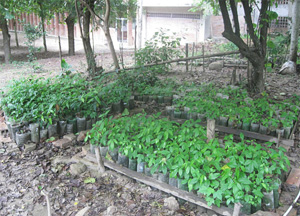
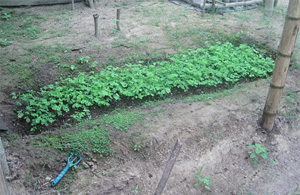
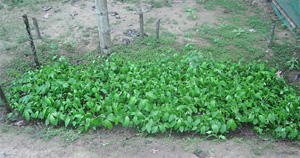
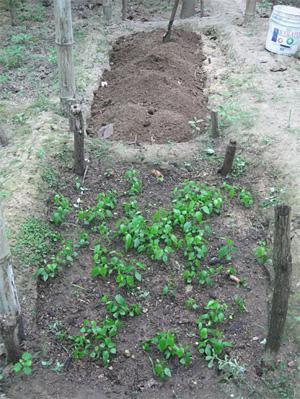
In May, we had an absence of volunteers so I took the opportunity to do some major cleaning and minor repairs around the apartment. Each room was completely vacated, swept from ceiling to floor (multiple times) and I even stained the floors. Repairs to the metal on a couple of the balconies were done and the metal on all of the balconies got a fresh coat of rust-resistant paint. Needless to say, the house is looking better than ever before, relatively speaking that is, since there’s always more work to do. But the difference is significant.
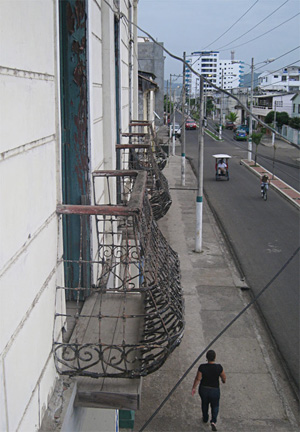
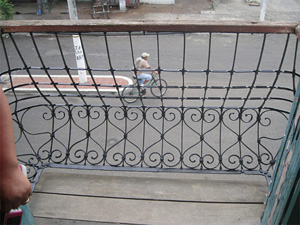



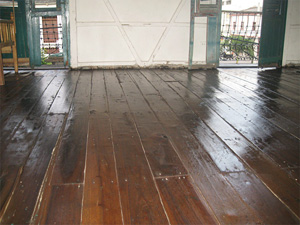
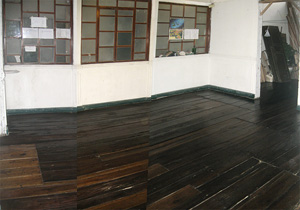
During this time Orlando held down the fort at the greenhouse, making sure that the beds with seedlings stayed healthy and that the few trees that we have so far this year were watered. He also took a week’s vacation.

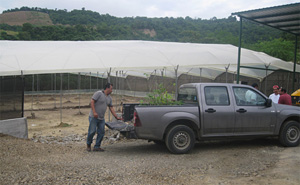
The city has officially resumed garbage separation and recycling in the downtown area. This includes organic and inorganic waste separation and plastic, metal, and cardboard recycling. They have inaugurated the newly renovated waste management facility which includes the compost processing area and a new recycling separator machine (don’t ask me how that works). Friends close to the Mayor have informed me that the Mayor has requested that the facility be named after Peter Berg. The city even had a small tree planting campaign around the facility and Planet Drum donated a truckload of trees to the cause. Let’s hope that citizens jump on board to help separate their waste, though the schedule for collection is painfully complicated.
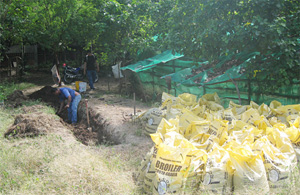
Also, I got a call from an acquaintance that has a chicken coup. He offered to give us 50-60 sacks of chicken poop with saw dust already mixed in if we were willing to pick it up. I rented a large truck and drove over to collect it. We consolidated old compost in a second compost trench to make room for it all and then dumped it in. The compost was piled high (over a meter) and has been condensing noticeably since. Orlando discovered a trick where a machete is stuck completely into the pile and used as a thermometer to check if the compost is heating up. After a month of composting, the machete comes out scalding hot. Is there anything for which a machete can’t be used?

In early June a fresh batch of volunteers arrived and got straight to work. They cleaned up weeds and fallen leaves at the greenhouse as well as macheted around the perimeter. Three seeds beds were exploding with hundreds of seedlings (Pechiche, Guachepeli, and Ebano) that were ready to be transplanted. Fortunately, we had a stock pile of already cut bottles and premixed soil. Bottles were filled with soil and trees were transplanted. But the stock pile quickly ran out, so more bottles were cut, more soil mixed and even more trees transplanted. Close to a thousand trees have been put into bottles where they will grow until they are ready for planting next rainy season.


More seedbeds have been prepared and we planted two large beds with Chirimoyas, which are one of our most popular native fruit bearing trees.
The volunteers also went out to do some seed collecting and they gathered a bucket-load of Cascol seeds and Algarrobo. The Cascol seeds need to be removed from their shells, a labor intensive task that will take a little while before they can be soaked in water and then planted in the beds.
The volunteers continue to keep the greenhouse running full steam and will also begin checking the revegetation sites that we planted this past year to make sure that the trees aren’t being overgrown with weeds and hopefully thriving. If they need water, we might have to do some watering in the field.
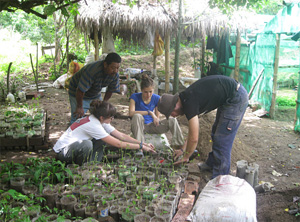

In other news, Orlando has gotten very involved with the triciclo (eco-taxi) associations and is helping them bring their paperwork up to date so they avoid hassles from authorities. I’ve been brainstorming how to help the triciclo operators and have been talking with friends related to the municipality on their behalf in an attempt to foment more support. This can be a painstaking task, but in the meantime I helped Orlando layout new ID cards for the drivers on my computer. The triciclos are a brilliant example of bioregional transportation and have never received any official support from the city, despite being one of the few eco-city features that has always been present. I’d love to see the city show some small measure of support for them, but unless you present a large-scale project and happen to find funding for it, it can be hard to get their attention.
Pásalo bien,
Clay

I don’t think the title of your article matches the content lol. Just kidding, mainly because I had some doubts after reading the article.
Can you be more specific about the content of your article? After reading it, I still have some doubts. Hope you can help me.
Your point of view caught my eye and was very interesting. Thanks. I have a question for you.
I don’t think the title of your article matches the content lol. Just kidding, mainly because I had some doubts after reading the article.
Your point of view caught my eye and was very interesting. Thanks. I have a question for you.
Can you be more specific about the content of your article? After reading it, I still have some doubts. Hope you can help me.